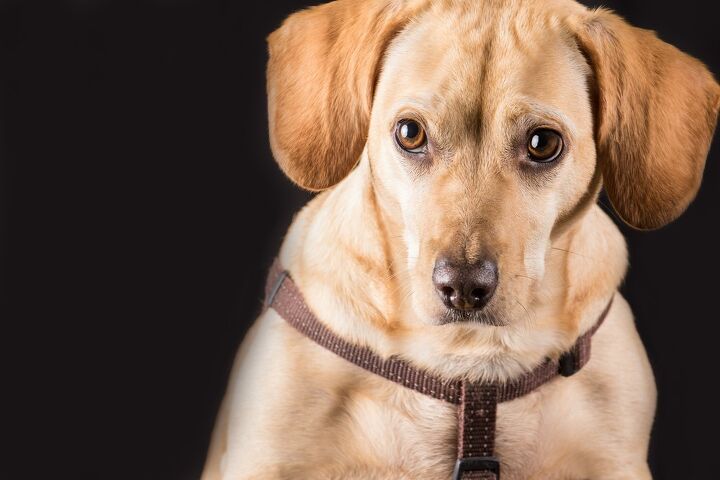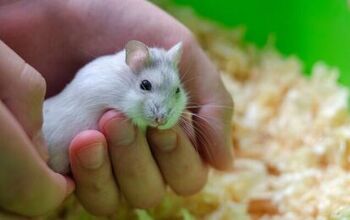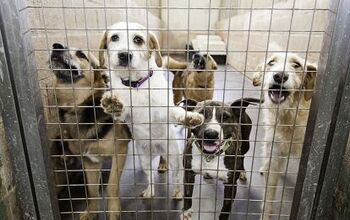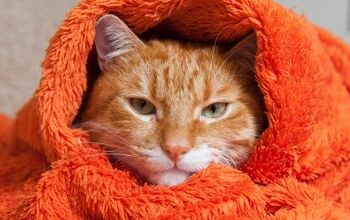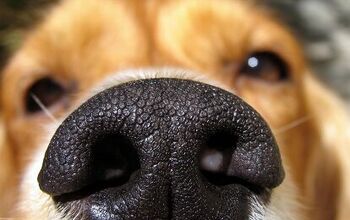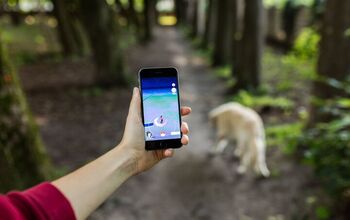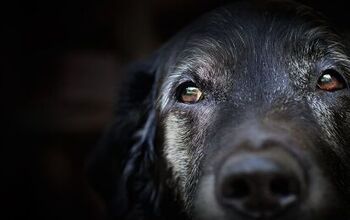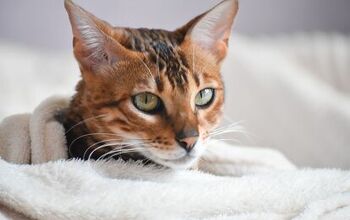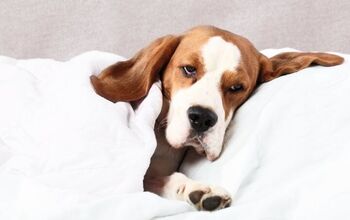Golden Dox


About Golden Dox
The spirited Golden Dox is a playful family dog that brings together the stubborn, feisty personality of the little Dachshund and the gentle, super-friendly nature of the Golden Retriever. This smart, energetic pooch is highly social and just loves to be in the center of all things “family”. He loves to be busy and because he’s such a smart little guy, boredom can become an issue if he doesn’t receive the mental stimulation and physical activity he needs. When this happens, destructive behaviors such as chewing and digging can occur so your family should be ready to tag-team walks and interactive playtime. Although he does well with other dogs and kids, his terrier instincts mean the Golden Dox isn’t an ideal choice for families with other smaller pets. While he isn’t a nuisance barker he will let you know when he feels something is amiss… however his naturally friendly nature means you shouldn’t be counting on this little guy to be a watchdog.
The spirited Golden Dox brings together the feisty little Dachshund and the friendly Golden Retriever for a playful family dog.
Because the Golden Dox is considered to be a Designer Dog, it means he likely first appeared on the scene around the 1980s when breeders first began crossing two (or more) popular pure-breds to produce a dog that was healthier, often non-shedding and sometimes smaller and gentler than many of the parent breeds. With the Golden Dox, the parent breeds include the Golden Retriever and the Dachshund and although he himself is considered a new breed, both parents have some pretty impressive lineage. With the Golden Retriever you have a pooch that was developed in Scotland back in the mid-19th century to fill the need for a hunting dog that was adept on land and in water and could bring back waterfowl with a gentle “mouth” meaning without damaging the bird. When it comes to the Dachshund, you have a breed that dates back 600 years to Germany where he was bred to flush badgers out of their holes. Hence his long, low profile and tenacious nature.
With the American Kennel Club (AKC) committed to advocating for pure-bred dogs only, the Golden Dox doesn’t qualify to become a member however both of this Designer Dog’s parent breeds are long-time members of this coveted club. The beloved Golden Retriever became a member of AKC’s “sporting” group in 1925 and he’s considered to be a friendly, intelligent and devoted. The feisty little Dachshund joined the “hound” group way back in 1885 and is described as being a friendly, curious and spunky dog.
The energetic Golden Dox requires a nutrient-rich food that is specifically designed to meet his age, weight and intense activity level. In spite of his always-active nature, his low-slung body and long back means its particularly important that he not become obese and that’s where his diet including quality, quantity and frequency plays a key role. It’s important to establish and maintain an ideal weight for this dog by selecting a food that is high in protein and low in fillers that can result in constant hunger and cause him to continually search for (or mooch) something to eat. Additionally, you should expect to feed him 2 to 3 smaller meals throughout the day versus allowing him to free-feed and potentially over-eat. Similarly treats should be healthy, top quality and dispensed only as earned or warranted.
The playful Golden Dox is a family-friendly dog that gets along well with kids and other dogs.
Patience will be needed when training your Golden Dox because in spite of his coming from two intelligent breeds that are known to be quick to pick up commands, the stubborn little Dachshund side means you have a pooch that won’t necessarily decide to follow those same commands. Because a headstrong pup can grow into a headstrong dog, you’ll want to start the training process early – in the 8-week age range – before he becomes too set in his ways. Socialization is important with this dog and it should begin as soon as you bring him home by taking the time to expose him to new faces, sights, smells and situations that can include puppy training classes. All will help build confidence and discourage aggressive behaviors in this dog. Because the Golden Dox thrives on praise, a positive, rewards-based approach that means lots of treats and pats for a job well done will net the results you’re looking for. And because of this eager-to-please nature, take the time to find any opportunity for him to showcase his ability to respond to commands. It will help build a positive bond between you and your dog.
Once he has reached adulthood, your Golden Dox will weigh somewhere between 30 and 50 pounds. Definitely more than the Dachshund, but less than a typical Golden. This weight will vary depending on the dog’s gender as well as how heavily the DNA from each side of his parent breeds influences his make up.
The playful Golden Dox is a family-friendly dog that gets along well with kids and other dogs but not necessarily smaller pets such as cats, rabbits and guinea pigs. The terrier in him considers them prey to be chased and while socialization can help, his basic instincts may kick in and present problems. He is an intelligent dog that loves to cuddle up on a lap and enjoy some down-time with his human pack. He also brings the stubborn traits of the Dachshund and together with the gentle nature of the Golden Retriever you have a dog that is spirited and wilful but also highly social and loving the chance to be the center of attention. Because of his intelligence, he can become bored when left on his own for long periods of time and destructive behaviors such as chewing and digging can be the outcome. Regular physical activity and mental stimulation that can include inter-active playtime and puzzle games are great ways to burn off energy and keep him occupied. While this little dog is alert and loyal, he’s also friendly and will bark if he feels it’s absolutely necessary but is more likely to welcome strangers into your home with a wagging tail than alert you to perceived danger – so no watchdog here. The upside is that he also isn’t yappy or quick to bark when he hears sounds or meets new people.
Typically, Designer Dogs are physically healthier than their pure-bred parents, however it’s always important to do a little research to better understand what your new family member may inherit from his parents down the line. With the Golden Dox, this can include certain cancers from the Golden Retriever as well as joint issues such as hip dysplasia and Intervertebral Disc Disease. From the Dachshund side, your new pooch may also experience ocular issues including cataracts, Keratoconjunctivitis sicca (KCS) and Progressive retinal atrophy (RRA). But don’t feel overwhelmed by this list of potential health issues. Your Golden Dox could lead a long and healthy life that is completely free of any medical issues.
The Golden Dox will need regular exercise, a top-quality food that is designed for his age and size as well as check-ups with your vet to ensure he lives a long, healthy life. With a good regimen in place, you can expect him to live between 12 and 14 years; which is a good age for a medium sized dog.
This little dog is high-energy and is going to need not only a couple of good long daily walks, but some serious interactive playtime. He loves to fetch and a tossed ball or Frisbee in the yard that he can catch and return to you, will be his idea of heaven. The Golden in him may produce a dog that loves to swim, so consider pools, lakes and ponds as a great option for tiring him out during hotter weather. The Golden Dox is highly intelligent and loves positive feedback so working some agility exercises into his regimen followed by the “good boy” pats and treats that he craves, will go a long way in keeping him happy, provide a great bonding opportunity and chance for him to burn off a little steam. Because he is such a social dog, visits to the dog park are a super opportunity for him to play and interact with other dogs however his terrier tendency to wander off means any leash free park needs to be fully fenced. As you can no doubt tell, this pooch needs activity in his life and failure to meet this important requirement may result in him developing destructive behaviors such as chronic barking, digging and chewing.
Friendly and playful, the Golden Dox is both spirited and friendly… and always ready to settle onto a lap for a cuddle.
Also known as a Golden Retriever Weiner, Golden Retriever Dachshund, Golden Doxie and Golden Weiner Dog, this designer dog’s mixed breed background mans he doesn’t qualify to join the coveted American Kennel Club (AKC) which is dedicated solely to promoting pure-bred dog breeds. He is however, recognized by the Dog Registry of America, Inc. (DRA).
While your Golden Dox will typically inherit the head structure and facial characteristics of a Golden, he will undoubtedly have the longer, low-slung body of a Dachshund with a coat that can reflect either breed when it comes to his grooming and maintenance. It is usual for this dog to have a wavy, medium-length double-coat in a golden or white color that resembles the Golden. While he will shed throughout the year, it will be light to moderate and a light daily brushing will help keep loose hair from becoming a nuisance in your home and vehicle. In spite of this regular brushing, you should expect to use the services of a professional groomer every couple of months to help keep him looking his best and remove any matts or tangles that have started to form. As with most breeds, bathing should only be done as needed and will likely be covered during his grooming sessions. That said, because he will have inherited the floppy ears from both breeds, weekly inspection and cleaning with a damp cotton ball will be needed to prevent smelly yeast infections that can be common in floppy-eared dogs. If your pooch takes after the Golden and loves to swim, make a point afterwards of ensuring his inner ears are entirely dry to prevent moisture build-up and infection.
Because Golden Dox puppies will have the longer, low-slung back of the Dachshund they need to be handled more carefully than other puppies and particularly when children are involved, guidance and supervision is recommended. If these little pups are accidentally dropped, back injuries can result and plague him for life so while socialization and exposure to new faces and situations is important, it must be done in a controlled environment. These pups can grow to inherit the Dachshund’s stubborn streak it’s best to begin training while they are young and open to learning. And because of this little guy’s potential to suffer from joint injures later in life, it’s important he not be overfed and that a regimen be set up where he is given smaller portions several times throughout the day, and ultimately twice daily as he reaches maturity.
Photo credit: Jon Osumi/Shutterstock; Joy Brown/Shutterstock

Sharing space with three seriously judgy Schnoodles and a feline who prefers to be left alone. #LivingMyBestLife
More by Mary Simpson




